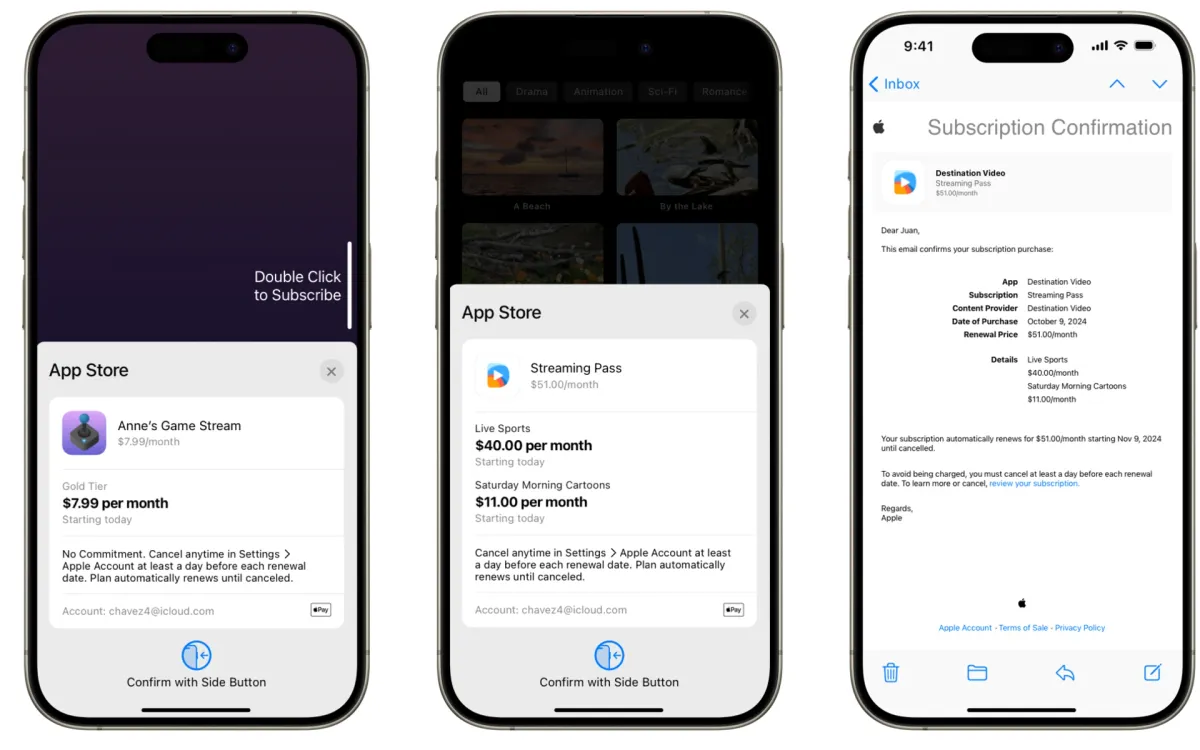
Two days ago, on January 23, 2025, Apple introduced a significant update to its App Store infrastructure with the Advanced Commerce API, marking a substantial shift in how developers can manage large-scale digital transactions. According to the official announcement, the new API specifically targets applications handling extensive content catalogs, creator-driven platforms, and complex subscription models.
The Advanced Commerce API addresses specific technical challenges faced by developers managing substantial digital catalogs. According to Apple's documentation, the system supports three primary business models: exceptionally large catalogs of one-time purchases, extensive subscription content libraries from multiple creators, and subscriptions with optional add-on content bundled as single purchases.
Technical specifications indicate that applications must meet specific system requirements to implement the new API. According to the documentation, apps must be compatible with iOS 15.0, iPadOS 15.0, Mac Catalyst 15.0, tvOS 15.0, visionOS 1.0, or watchOS 8.0 at minimum. The API integration requires developers to utilize StoreKit 2 for initiating and merchandising in-app purchases.
The implementation process involves several mandatory technical components. Developers must incorporate subscription management capabilities within their applications using the showManageSubscriptions API. The system necessitates integration with the App Store Server API for transaction history monitoring and subscription status verification. Additionally, developers must enable App Store Server Notifications V2 to receive real-time updates on subscription status changes.
Security and user protection measures form a crucial component of the new system. The documentation emphasizes that developers must provide in-app refund request mechanisms, typically implemented through a "Report a Problem" link integration. The API maintains the existing App Store commerce system's security features, including end-to-end payment processing and comprehensive tax support.
For subscription-based applications, the system introduces specific technical recommendations. The documentation suggests implementing the Billing Grace Period feature in App Store Connect to manage service interruptions caused by payment issues. This mechanism allows subscribers to maintain access during payment resolution attempts.
Data management capabilities include the Send Consumption Information endpoint, enabling developers to transmit detailed usage data when customers request refunds. This feature aims to enhance refund processing accuracy through improved data analysis.
The eligibility criteria focus on specific use cases. Applications must demonstrate that their business model centers on one of three scenarios: managing exceptionally large catalogs of one-time purchases, handling extensive subscription content from multiple creators, or providing subscriptions with optional add-on content as unified purchases.
Implementation requires adherence to specific technical protocols. Developers must manage purchase catalogs using individual product identifiers in their systems. The API integration process involves submitting a request form for initial access, followed by a comprehensive App Review process.
Financial implications remain consistent with existing structures. According to the documentation, commission rates for developers remain unchanged when implementing the Advanced Commerce API. The system allows developers to maintain parallel management systems, enabling the use of both the Advanced Commerce API and App Store Connect for in-app purchase administration.
Technical limitations exist within the current implementation. The documentation notes that purchases processed through the Advanced Commerce API cannot be promoted on the App Store. Additionally, certain features remain unavailable, including subscription offers, Family Sharable In-App Purchases, and StoreKit Testing in Xcode.
Reporting capabilities maintain consistency with existing systems. Financial data for transactions processed through the Advanced Commerce API appears in App Store Connect's Summary Sales Reports and Payments and Financial Reports, ensuring continuity in business analytics.
The development tools ecosystem supports the new API through various technical resources. Developers can utilize the App Store Server Library for creating in-app signature requests, generating JSON Web Tokens for authorization, and transaction verification. Bug reporting and enhancement requests are managed through the Feedback Assistant system under the "Developer Tools & Resources" category.

